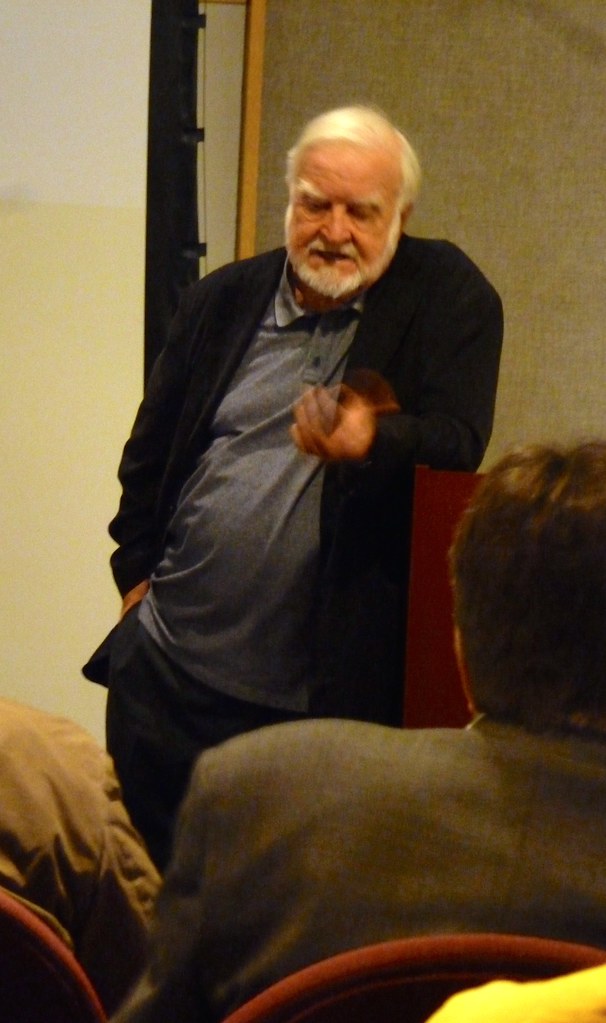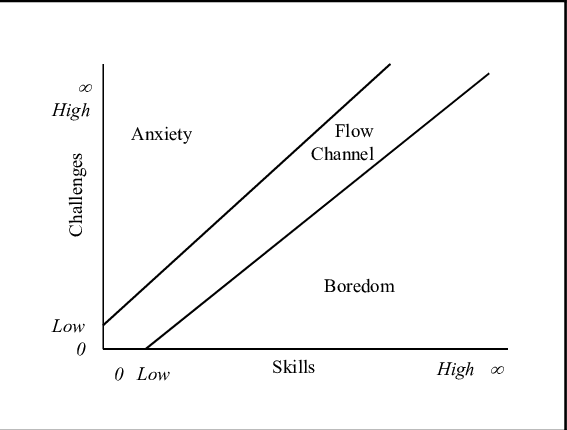Mihaly Csikszentmihalyi showed us flow. Writers need flow. And tech destroys it.

Last week, the great psychologist Mihaly Csikszentmihalyi died. Csikszentmihalyi (pronounced chik-sent-mee-hai-ee) advanced our understanding of happiness and creativity enormously by codifying the concept of “flow,” a highly pleasurable and concentrated state of mind in which people are enormously productive. Every writer needs to know about flow — what it is, why it is important, and how to get it. We also need to know what destroys it — and the answer is, nearly everything about the modern, technology-soaked way we live.
In his book Flow: The Psychology of Optimal Experience, Csikszentmihalyi examines happiness and human thought. He describes the state of flow, which is achieved when a person’s skills and the resistance to success are perfectly balanced. When the work is too easy, we get bored; when it is too difficult, we get anxious.

Flow is associated with a continual increase in skill, and here is why: if we keep working at and practicing something (tennis, writing, ballroom dancing, a video game), we get better at it. As the skills increase, we move out of the flow channel and find things too easy. This drives us to seek greater challenges, which drives us back into the flow channel. So we keep moving up and to the right in the diagram, continually getting better and then seeking greater challenges.
In his book, Csikszentmihalyi describes the conditions necessary for flow (bold phrases are his, the rest is my commentary).
- There are clear goals every step of the way. In other words, you know where you are going.
- There is immediate feedback to one’s actions. You can see when you’re succeeding, and when you’re not.
- There is a balance between challenges and skills. The work is hard, but not too hard.
- Action and awareness are merged. You are thinking exclusively about what you are doing.
- Distractions are excluded from consciousness. You are fully concentrated on the problem you are solving.
- There is no worry of failure. You think only about continuing to make progress, not reflecting on how well you are doing.
- Self-consciousness disappears. You become the work, thinking not of who you are, but of only of what you are doing.
- The sense of time becomes distorted. The passage of time whizzes by as you focus exclusively on the activity.
- The activity becomes an end in itself. You keep going because you are enjoying what you are doing, not just to reach the end.
Writing and flow
As I describe in my book — and as I wrote in this blog — flow is essential to good writing. To reach the flow state, you should start, not by writing, but by researching, collecting ideas, and organizing them into a fat outline. Then find a place you will not be interrupted, make sure you have the right level of caffeination and blood sugar, and turn the fat outline into prose. Writing this way — continuously — is not only pleasurable, but generates better results, because when you write in flow, the writing flows for the reader as well — your sentences and paragraphs connect as if flowing directly from your mind to the mind of the reader.
Consider again the conditions for flow that Csikszentmihalyi described. And consider what a constantly buzzing smartphone connected to social media and friends will do to them. Action and awareness cannot merge when awareness includes social media interruptions. You cannot exclude distractions when you are worried if your latest Instagram post is getting likes. Interruptions generate self-consciousness and concentrating becomes the challenge. Without concentration, there is no flow.
I will say this as simply as I can: if you are addicted to your smartphone and cannot put it down for 45 minutes, you will not be able to write in flow. You will lose the thread.
Getting into a flow state can be difficult, but staying in it and being productive is easy, provided there are no distractions. If you have to restart your process ten times in a 1500-word piece, it’s not going to flow. And you’re not going to enjoy writing it.
On the other hand, if you can purge those distractions and just work for a while, you will find writing gets not just easier, but more fun. This will make you want to spend more time doing it, which will make you better, which will make you want to write more, creating a virtuous circle. You will not worry about failure, because you will be having a blast.
So find a place and a time where you cannot be interrupted, make sure you’ve done the research ahead of time, and when it’s time to write, write — and do nothing else. You’ll be amazed at how good you can get at it, very quickly, when you enter a flow state.
A personal note
I have always been pretty good at concentrating. When I was studying to be a mathematician, I could get into a flow state working out proofs. When I began to work with spreadsheets, I again entered a flow state and felt awesome creating spreadsheet documents that did everything from modeling budgets to projecting revenues to analyzing data. These were all intensely pleasurable pursuits for me.
But since I became a professional writer almost 40 years ago, I have tried to write as much as I could. I wrote software manuals (and yes, I loved that). I wrote research reports. I wrote books. And I blogged.
I had many chances to rise in management, but I continually shifted my work back to areas where I could do more writing. The challenge of writing continued to increase, and I continued to grow, just as Csikszentmihalyi predicted.
Because of flow, I have had more total pleasure from writing than anything else I’ve done in my life. And 99% of that is non-fiction. I love that I created things that were useful to read. But from a more personal perspective, I loved creating them, which made me happy.
There are lots of answers to the question “Why did you become a writer?” Writers will tell you they write because they are creative; because they want to influence people; because they are driven to persuade; because they love explaining things.
But in the end, the only answer to the question “Why do you write?” is “Because it is fun.” And that happens because of flow.
If you write more and more, it will get easier and easier, and your writing will get better. But only if you squash the distractions and write in flow. So do the research first, put the phone away, and concentrate. It will pay off. And if your writing life is anything like mine was, you will be very glad you learned to write in flow.
Thank you, Mihaly Csikszentmihalyi. You created something that mattered to a whole lot of people.